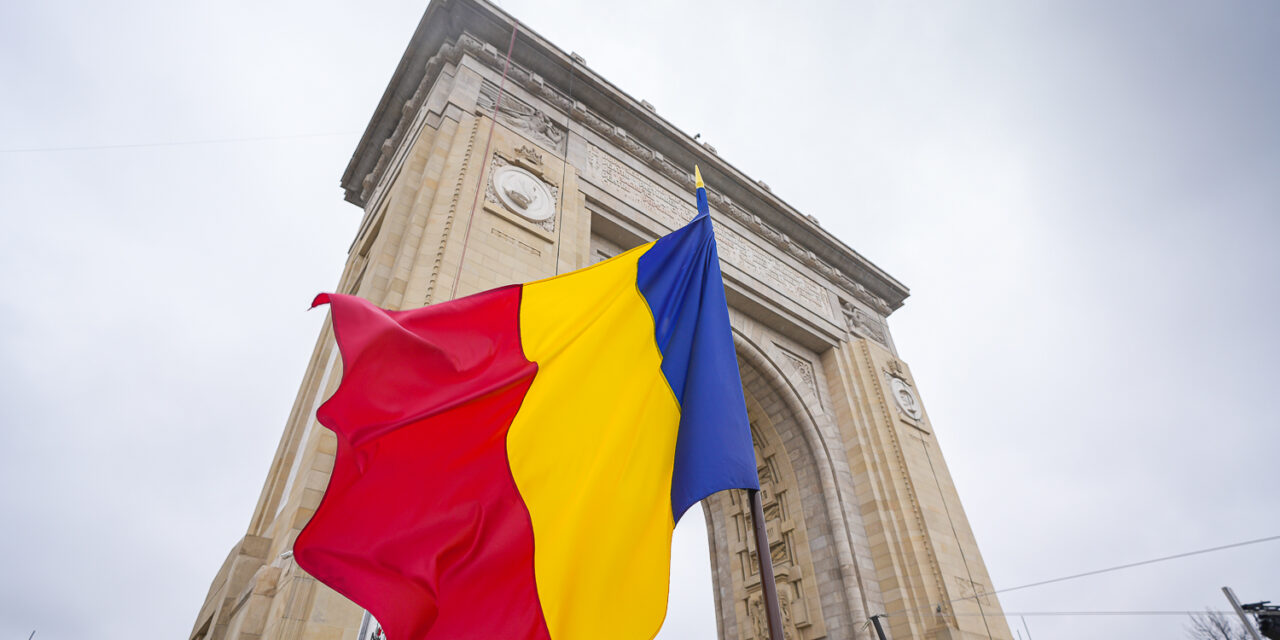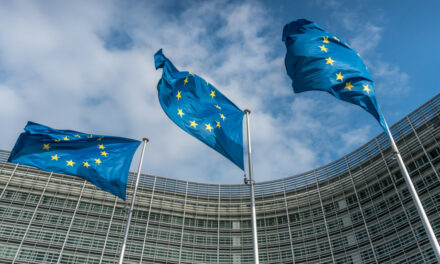Be it Transylvania, Bessarabia, Dobruja, Hungary to the Tisza, the coast of Albania, or maybe your phone. In vain, the ability of Romanian politics to bend reality and space is amazing.
It's only March, and nini: the topic of the Romanian "golden train" has come up again. In other words, the ownership of the 93 tons of gold that the Romanian government fleeing to Iași loaded onto trains and sent to Moscow in 1916-17 after their sneak attack against the Austro-Hungarian Monarchy failed, and as a result of the counterattack
from the much smaller "Kifli"-Romania at the time, only one Kiflic cluster was kept, and that too only thanks to the Russian allies.
So was found , and God forbid, on the part of Bucharest, namely with the fact that Moscow owes them the return of this gold to this day - such little things as the fact that they took Bessarabia from the Russians afterwards, or that they also ransacked the Having the Soviet Union arm in arm with the Germans twenty years later, it doesn't bother the Romanian politicians so much that they don't ask the Russians at least every few years: you owe us. In vain, the ability of Romanian politics to bend reality and space is amazing.
And his persistent stubbornness: once they get it into their heads that something is theirs, they demand and pay, use violence and threaten until they get it. It doesn't matter what they want from the shelf - and for safety's sake they put this and that in the store once they're there - the point is that
what they once bumped into is theirs. Be it Transylvania, Bessarabia, Dobruja, Hungary up to the Tisza, and even beyond,
The coast of Albania, private or public property, or perhaps your phone, on which you were just so stupid as to show them the exact time at their request - they stubbornly insist that it is theirs, indeed, it has always been theirs. Perhaps what they are uniquely talented at is that it usually takes a relatively long time to condition a people - manufacturing legends, embedding them in the national public consciousness, establishing demands, events, political declarations, etc. - with them, this can be solved with a piece of blue-yellow-red ribbon.
What they tie to is theirs from then on, forever, forever. If you take it off, you have already attacked the sacred homeland,
even if it was only painted on a trash can, even if the Mioritic Páló Pató left it to rot from then on, the lazy hands to clean, clean, and maintain are suddenly forced into fists by a word of command: keep your hands away from mine, get out of my country! Let us think of their concrete crosses placed without permission - and not, incidentally, of the Romanian dead - in the Austro-Hungarian cemetery in Úzvölgy: until then, the anti-Hungarian fervor was the rampage of a few hundred barbaric buggers, as soon as the crosses were strapped up, they were blessed by an Orthodox priest and everything needed immediately. a national memorial was created out of nothing, and the majority of the Romanian press accepted the lies without a bone.
This alarm at the word of command, this will to fight is both horrifying and somehow enviable.
(Envy, of course, is not about aggression - thank God that in our stinky life they wouldn't be able to recruit thousands of people for a pogrom or grave desecration, while in the neighborhood it is a snap, we see - but about cooperation).
wrote about this in 1911, when he saw that they were organizing the acquisition of Transylvania in front of the noses of the idle Hungarians as if they were acting on a single order, but they managed to internalize this order - and all the while they were in the best possible, sincere friendship between Hungarians, Saxons and Jews with their neighbors. And if one examines today whether anything has changed in this area, one can see that hardly: after a "buna ziua" one can make friends with the majority of Romanians in the pub, on the beach, especially abroad; if it's your neighbor, he'll learn to say "good day!" for your sake, and you can make lifelong friendships, which you can only preserve by avoiding so-called sensitive topics. Because if any kind of historical question or affiliation arises, then many - with respect to the exception -
they are able to beat the table and defend the most blatant lie, the most transparent obscenity, if it happened to be said by a Romanian;
all this is only exacerbated by the faceless horde world of social media, which is especially suitable for this. The myth-creating chauvinism, which we laughed at in our country, and where we fought to meet in old tarpaulins, has been poisoning public education and public discourse for political purposes for more than a hundred years.
It is then easy for seasoned politicians, historians and opinion makers belonging to the world of politicians to build a hyper-nationalist public policy on this: cognitive dissonance is not an obstacle here either. In historical matters in particular:
Mihály Vitéz is interesting as long as he "unifies" Romania - giving the Székely people a letter of privilege, with autonomy written in black and white, is surely just Hungarian propaganda.
If necessary, they tear out small slips of paper that prove them from codices and throw the rest into the fire - just one example: Some Romanian history-loving circles fell in love with the Anonymus Gesta Hungaroruma when they saw in it the Vlach "natives" who were placed on the territory of Hungary - while this is historically just as authentic data, such as the impregnation of Emese by a turul bird. On the contrary, Anonymus is no longer a source for the actions of the Hungarian kings - only as long as he imagines Vlachs in the Carpathian basin of the 18th and 19th centuries.
But this can increase when it is not only about national past and rights, but also about more important things: for example, money, art treasures, valuable real estate. After they attacked Hungary again two years after the fiasco of 1916, this time with success, they ransacked and raped them, deported thousands of civilians and killed hundreds, and caused damage equivalent to 25 billion gold crowns, i.e. 16 tax years.
At the peace conference in Paris, they will present a hefty bill for the war front, which the mutilated Hungary should pay to Romania.
Or there is the matter of the Gozsdu Court: while in the twenties, in addition to the looting of Hungarian state property, the entire Hungarian Transylvanian aristocracy was being looted under the name of "land reform", at a value incomprehensible to today's minds, they still dared to raise the issue that the Gozsdu Court in Budapest Manó Gozsdu still pulled it up to help the Romanian students, so it's for them. All this with a deadly serious image. Anyone who seeks a compromise with them at this time,
you can expect a compromise much like arguing with a wolf attacking you in the forest to eat only one of your thighs.
They look for the crumbs that they think are theirs, they thank you for the stolen bread, by the way: it has always been theirs, the word "baker" is an ancient Dacian word anyway, it means: "a Romanian driver behind the wheel of an overloaded truck squealing to Manele music and live-streaming speeding on his mobile phone ". Or something like that.
What must be admitted, however: they are really very good at always picking up the "debt" that they want to enforce against the currently weaker or publicly hated party in a given conflict.
They are doing roughly the opposite of what Hungarian politics has been doing for the past five hundred years - and undoubtedly more successfully.
Now Russia has appeared in this field, which apparently does not want to mess with NATO, so it is safe to demand something from it again. So they quickly looked up what appeared next to Moscow's name on the list of demands in Bucharest: the golden train. Another question is that the Russians sent them to hell, and even told them: you owe us! To which the costs of the Soviet "liberation" of 1944, which Romania owes, came as a justification.
Medvedev, who was lost in the loss of power or the vodka, and otherwise very rarely says anything good, told them: "Romanian is not a nation, but a way of life".
Knowing the facts, their mutual hatred is somewhat understandable. Of course, not because of the injuries they caused each other: but because of their similarity to each other.
Featured image: Klaus Iohannis / Facebook













